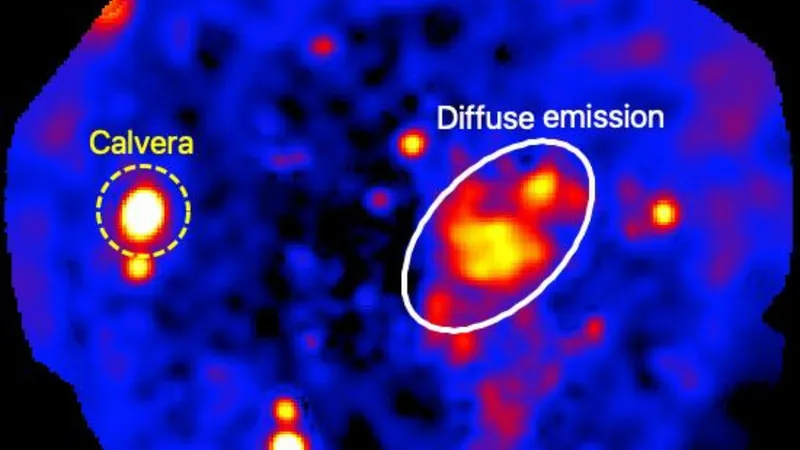
Unlocking the Secrets of Alzheimer's: How a Defective Sense of Smell Could Be the Key to Early Diagnosis
2025-09-03
Author: Emily
The Hidden Warning Signs of Alzheimer's
Did you know that a declining ability to smell might be one of the first signs of Alzheimer's disease? Researchers have long suspected this connection, but a groundbreaking study published in *Nature Communications* finally reveals the science behind it. This new research could pave the way for innovative smell tests, making early Alzheimer’s detection a possibility and offering hope for timely intervention before memory loss becomes severe.
How the Brain's Immune System Plays a Role
At the heart of this discovery are immune cells in the brain that eliminate vital nerve fibers responsible for our sense of smell. The leading team of scientists from Germany's Center for Neurodegenerative Diseases and Ludwig-Maximilians-University in Munich conducted detailed analyses on the brains of both humans and mice affected by Alzheimer's. They found that in the disease's early stages, these immune cells—a type known as microglia—remove neural connections between two critical areas of the brain: the olfactory bulb, which processes smell, and the locus coeruleus, which regulates various physiological responses.
The Science of Smell and Alzheimer's Connection
The olfactory bulb receives signals from the nose and begins the complex process of smell perception, while the locus coeruleus acts as a hub for sorting sensory information. In the early stages of Alzheimer’s, researchers discovered that the nerve fibers linking these two regions undergo damaging changes. Specifically, a fatty acid normally found inside the membranes of these fibers shifts outward. This alteration sends out a distress signal recognized by microglia, prompting them to 'consume' the nerve fibers.
A Dangerous Miscommunication
In healthy brains, this signaling helps prune unnecessary neural connections, purging what is no longer needed. However, in Alzheimer’s patients, the hyperactivity of certain affected neurons leads to miscommunication, resulting in detrimental effects. Microglia misidentify these altered fibers as threats and eliminate them, effectively severing the crucial neural highway between smell perception and brain response.
The Promise of Early Detection Through Smell
This pivotal research could revolutionize how we diagnose Alzheimer's disease. By developing tests that assess olfactory capabilities, we could identify patients in the very early stages of the disease. This early diagnosis could direct them towards therapies targeting the harmful beta-amyloid protein deposits—these treatments are more effective when administered early, before the damage escalates.
What This Means for the Future
As scientists continue to unlock the mysteries of Alzheimer’s, this new understanding of how our sense of smell might serve as an early warning system opens up exciting avenues for preventive care and treatment. With further research and innovation, the potential to change the course of Alzheimer’s disease is on the horizon.









 Brasil (PT)
Brasil (PT)
 Canada (EN)
Canada (EN)
 Chile (ES)
Chile (ES)
 Česko (CS)
Česko (CS)
 대한민국 (KO)
대한민국 (KO)
 España (ES)
España (ES)
 France (FR)
France (FR)
 Hong Kong (EN)
Hong Kong (EN)
 Italia (IT)
Italia (IT)
 日本 (JA)
日本 (JA)
 Magyarország (HU)
Magyarország (HU)
 Norge (NO)
Norge (NO)
 Polska (PL)
Polska (PL)
 Schweiz (DE)
Schweiz (DE)
 Singapore (EN)
Singapore (EN)
 Sverige (SV)
Sverige (SV)
 Suomi (FI)
Suomi (FI)
 Türkiye (TR)
Türkiye (TR)
 الإمارات العربية المتحدة (AR)
الإمارات العربية المتحدة (AR)